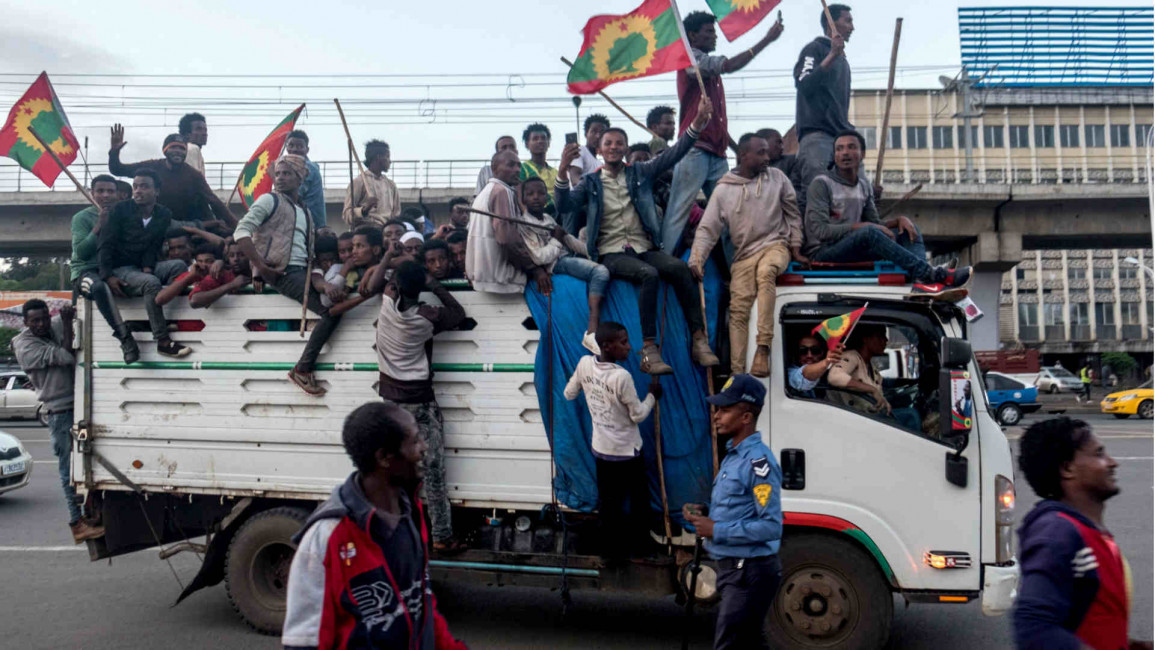Ethnic-based attacks erupt in Addis Ababa, leaving several dead
Several people died and hundreds fled their homes overnight in ethnic-based attacks on the outskirts of Ethiopia's capital.
"Several lives were lost and properties damaged due to this attack," head of the Oromia Police Commission, Alemayehu Ejigu, told the state broadcaster ETV on Sunday. He said 70 suspects have been arrested.
"The perpetrators are criminals organised in groups to kill people and cause damages to the properties of targeted citizens," he said. "This is a shameful act".
Police said the attacks started late Saturday afternoon in the Burayu and Ashewa Meda areas just outside of the capital. They did not say what prompted the violence.
Scores of Addis Ababa residents demonstrated in front of the state broadcaster calling for the perpetrators, whom they suggested were youths from the surrounding Oromia region, to be brought to justice.
Some locations in the north and northwestern parts of Addis Ababa remained tense on Sunday. City officials visited the displaced on Sunday morning pledging support but Ethiopians are expressing anger on social media to take serious measures to stop ethnic-based attacks.
Twitter Post
|
Ethnic-based attacks over land and resources are not new in Ethiopia, home to more than 80 groups. But the severity of such attacks has grown in recent months. UNICEF said in August that as many as 2.8 million Ethiopians were internally displaced, mainly due to ethnic conflict.
Frustrated by the new wave of attacks, Ethiopia's leader has warned in recent weeks that those who are instigating the violence in different parts of the country should stop their actions or his government will be forced to take measures. "We are only humans, so we won't sit and watch them from now on," he said.
These crises are posing the biggest challenge to Abiy, the first Oromo to hold office, since he came to power in April.
On Thursday, violence in Addis Ababa appeared linked to the homecoming for the Oromo Liberation Front (OLF), which took place on Saturday, as part of a sweeping reform agenda launched by Abiy.
Some Oromos believe Addis Ababa, a chartered city separate from Oromia, should be part of the region though the city is home to a range of ethnicities from across Ethiopia.
An attempt by the government to expand the capital's borders into Oromia was decried by Oromos as a land grab and sparked more than two years of unrest in the region that played a role in Abiy's rise to power.
Agencies contributed to this report.
Follow us on Twitter: @The_NewArab


